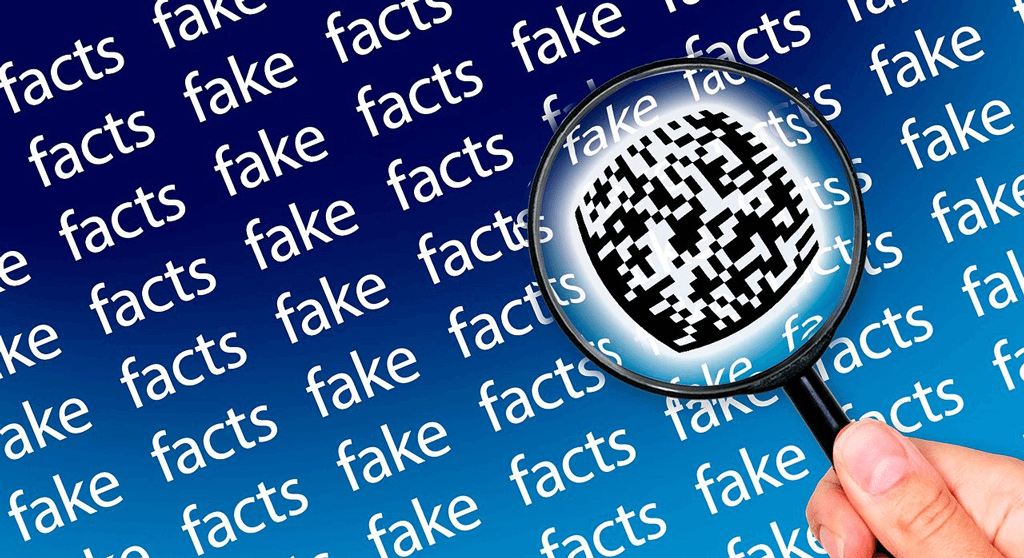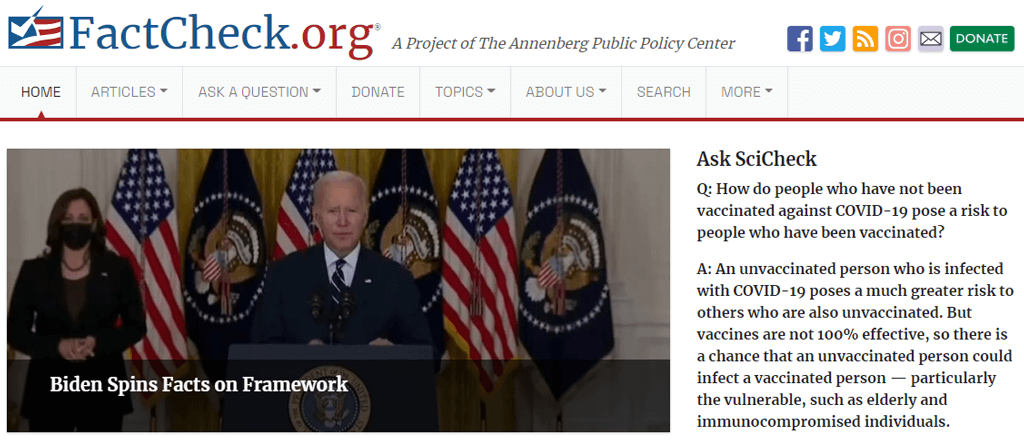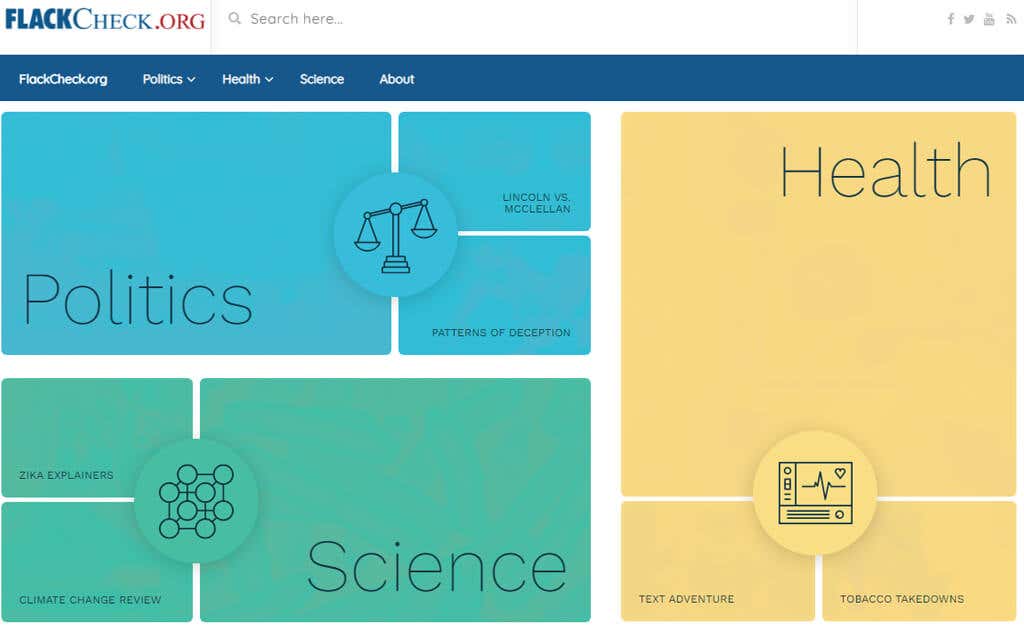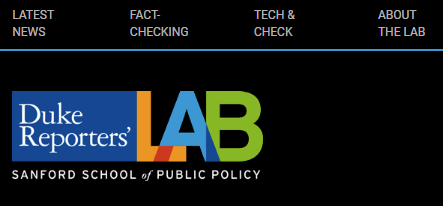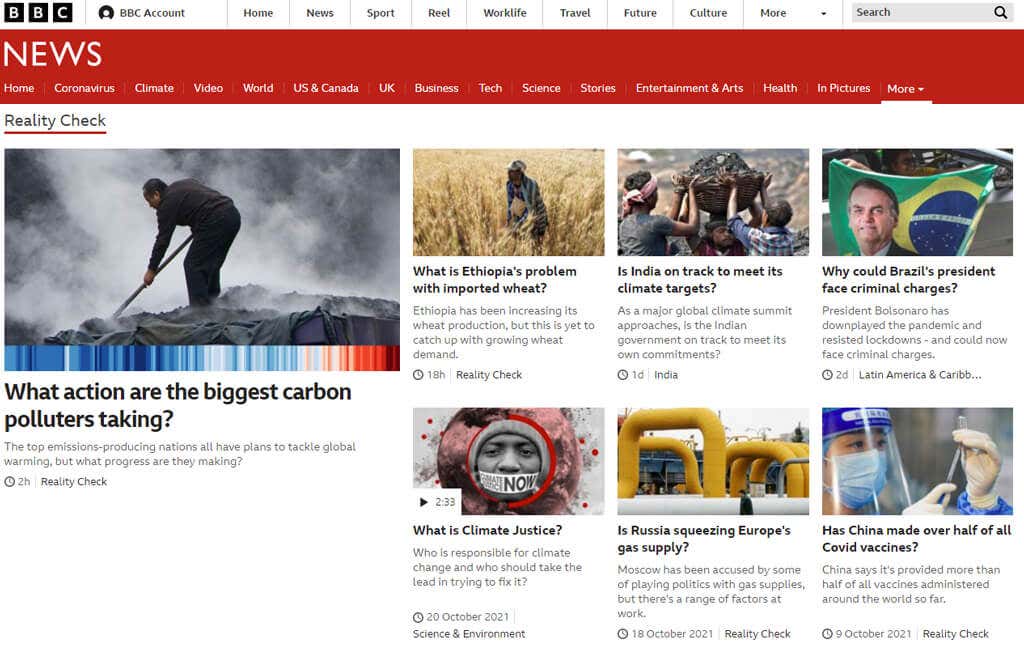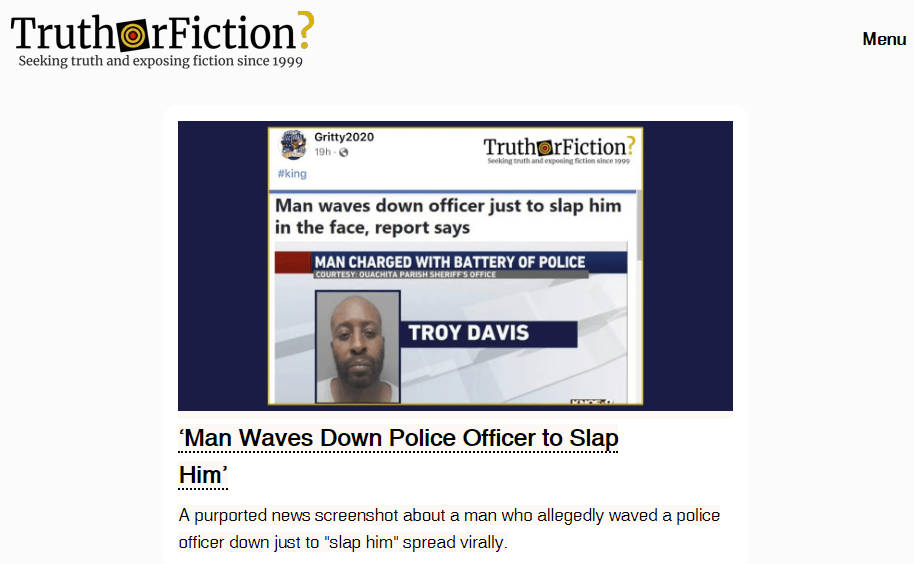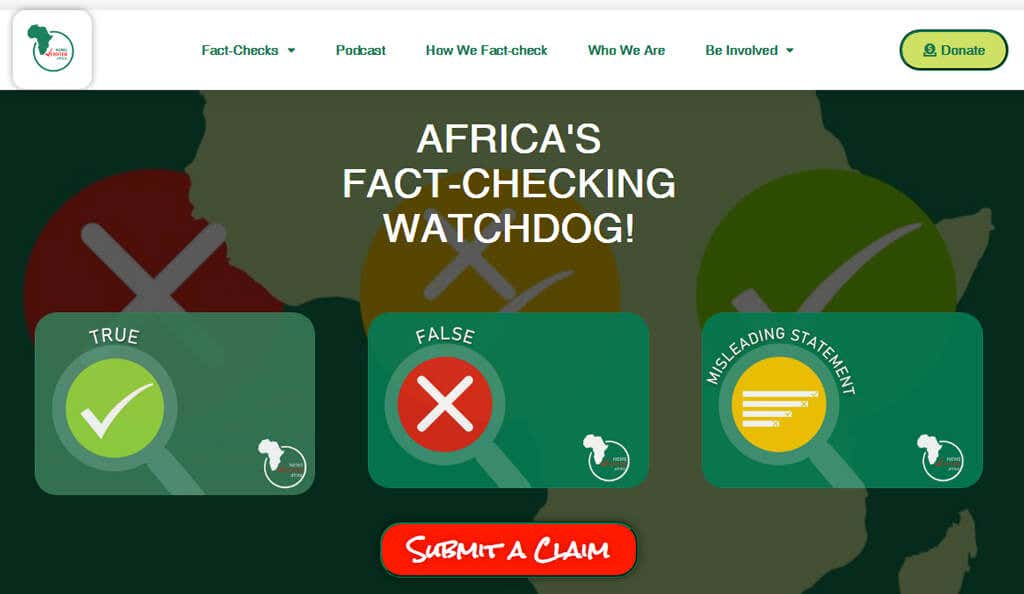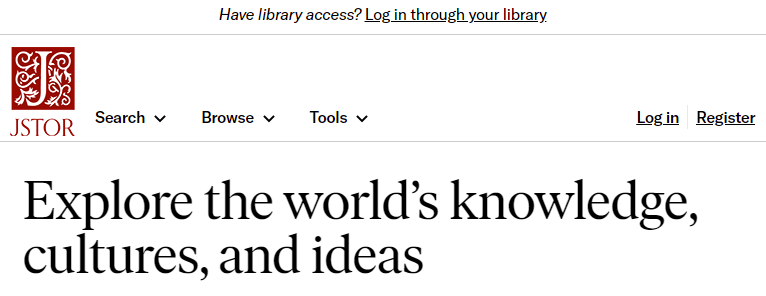Win the battle in real vs fake news
It can be difficult to determine if the information you’re reading is real or fake. Misinformation abounds. It’s up to you to critically evaluate whether what you read or hear is true, whether that’s spotting fake websites, fake emails, fake reviews on Amazon, or simply fact-checking the information you come across online.
Learning how to tell the difference between fake news and real news is a crucial skill to hone. As a member of our global community, you are responsible for making informed judgments, especially about the information you come across on social media.
We’ll look at some of the best fact-checking sites to fight misinformation, focusing on sites that are evidence-based and grounded in science so that you can be confident that the information you’re reading and sharing is true.
1. FactCheck.org
The Annenberg Public Policy Center project at the University of Pennsylvania has been around for a long time and has always enjoyed a reputation for debunking false claims, mostly those made by U.S. politicians. While it does focus on political claims, FactCheck is a nonpartisan and nonprofit organization that monitors politicians’ speeches, television ads, and news releases to keep them honest. Using the best fact-checking sites will help you engage in polite debate and have an informed opinion.
In addition to keeping an eye on the integrity of American politicians, FactCheck’s Facebook Initiative works to debunk false information shared on the social network. You can also check out FactCheck’s Viral Spiral feature or submit your questions.
2. SciCheck.org
While SciCheck is part of FactCheck.org, it deserves its own entry on this list. Since 2015, the SciCheck feature has been debunking false or misleading scientific claims. SciCheck includes a project—in English and Spanish—dedicated to fact-checking information about Covid-19 and vaccines. If you hear a scientific claim that makes you scratch your head, head to SciCheck to verify whether it’s true.
3. FlackCheck.org
FlackCheck is a companion site to FactCheck.org. It’s mostly focused on political literacy, but it can also help you learn how to identify the logical fallacies in arguments in general. Of course, if you do recognize a flaw in someone’s argument, that doesn’t necessarily mean the claims they’re making are all completely false. Still, it can give you some insight into the ethics of the person or institution making those claims.
4. MediaBiasFactCheck.com
Fact-checking is not a one-and-done kind of effort. For it to work, several levels of review are needed. Enter Media Bias/Fact Check (MBFC). While the website’s advertisement-riddled design doesn’t inspire confidence, it is one of the best fact-checking sites for determining media bias. (MBFC does go out of its way to inform site visitors that it has no control over which ads are displayed, but the fact remains that there are a LOT of them.)
Here’s how MBFC works. Enter a media outlet’s name or URL into the search bar, and MBFC will tell you whether the source is questionable or to what degree it has been proven to have a left, left-center, right-center, or right bias. Sources can also be categorized as “conspiracy/pseudoscience” if they sometimes publish unverifiable information or aren’t supported by evidence or “pro-science” if they follow the scientific method and are evidence-based.
In addition to listing third-party fact-checking extensions it likes, MBFC also offers its own Official Media Bias Fact Check Extension for Chrome and Firefox.
5. ReportersLab.org
Excuse us while we get a little meta here. At the Duke University Reporters’ Lab, you’ll find a database of fact-checking sites as well as a round-up of tools to help you and other fact-checkers…well, check facts. The Reporters’ Lab is housed at the Sanford School of Public Policy. It’ll give you a sense of the state of fact-checking around the world and fact-checking innovations you can look forward to. The interactive map is beneficial if you’re looking for local fact-checking sources.
6. Lead Stories
Lead Stories is the site behind the Trendolizer engine, which shows you in real-time what stories, images, and videos are going viral right this minute. It then fact-checks those trending topics for hoaxes.The site is one of Facebook’s partners in its efforts to fight misinformation on the social media platform. It’s also a member of the #CoronavirusFacts Alliance.
7. BBC Reality Check
BBC Reality Check is the fact-checking arm of the British Broadcasting Company (BBC). Launched in 2017, the BBC Reality Check team was assembled to fact-check and debunk fake news trying to pass as real news. It looks at news flagged as misleading or false on sites like Facebook and publishes articles with the Reality Check category tag. While you cannot exclusively search the Reality Check section, if you spend some time reading the articles, you’ll be in a better position to know the truth.
8. TruthOrFiction.com
Truth or Fiction is one of the best fact-checking sites where you can get information on fake news and viral content you may come across online or by email. The site is straightforward. Scroll through the unending list of claims and select one that interests you for more information. Each article includes the claim, a rating, and reporting on the details of the claim and why it may be false or misleading.
9. NewsVerifier.Africa
Billed as “Africa’s Fact-Checking Watchdog,” News Verifier Africa (N-VA), is a nonprofit that was created in 2020 to fight against misinformation about Covid-19. The people behind N-VA worry that “the trend of misinformation has widened public distrust in the media and government,” so they’ve created the site to do something about it.
Site visitors can submit a claim to be fact-checked, listen to the N-VA podcast, or browse through claims.
10. Resources for Going Straight to the Source
Journalists often report on articles published in scientific journals. While journalism’s role is to synthesize complex ideas and detailed information for consumption by the general public, sometimes you might want to go straight to the source. Unfortunately, scientific journals usually have a paywall, but several workarounds help you find those articles for free.
- Registering for an account at jstor.org will give you free read-online access to 100 articles a month. And be sure to see if your local library has a JSTOR account. If so, you may be able to get access to even more.
- Google Scholar allows you to search for articles by author, title, date, and publication.
- Contact the author directly. Scientists are only human. If you email them directly and ask for a copy of the journal article they wrote, they’re more than likely to send it to you!
Opinions affect actions. When you choose to verify the information you read online or hear from another person, you’re helping to reduce the cognitive biases inherent in each of us. Fact-checking helps us stay skeptical and, ultimately, increase our survival chances by grounding ourselves in what is proven to be true. Go forth and verify!

